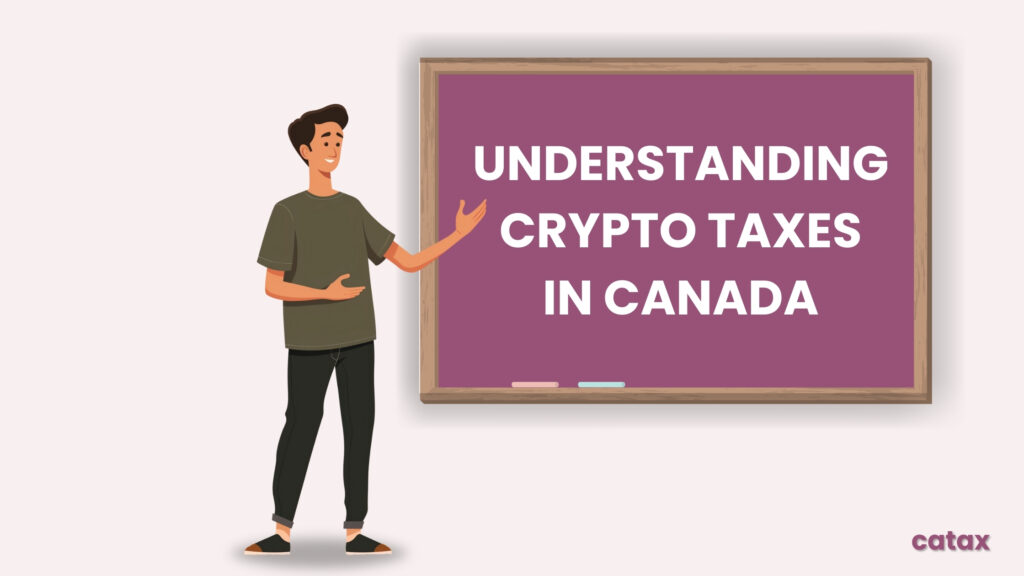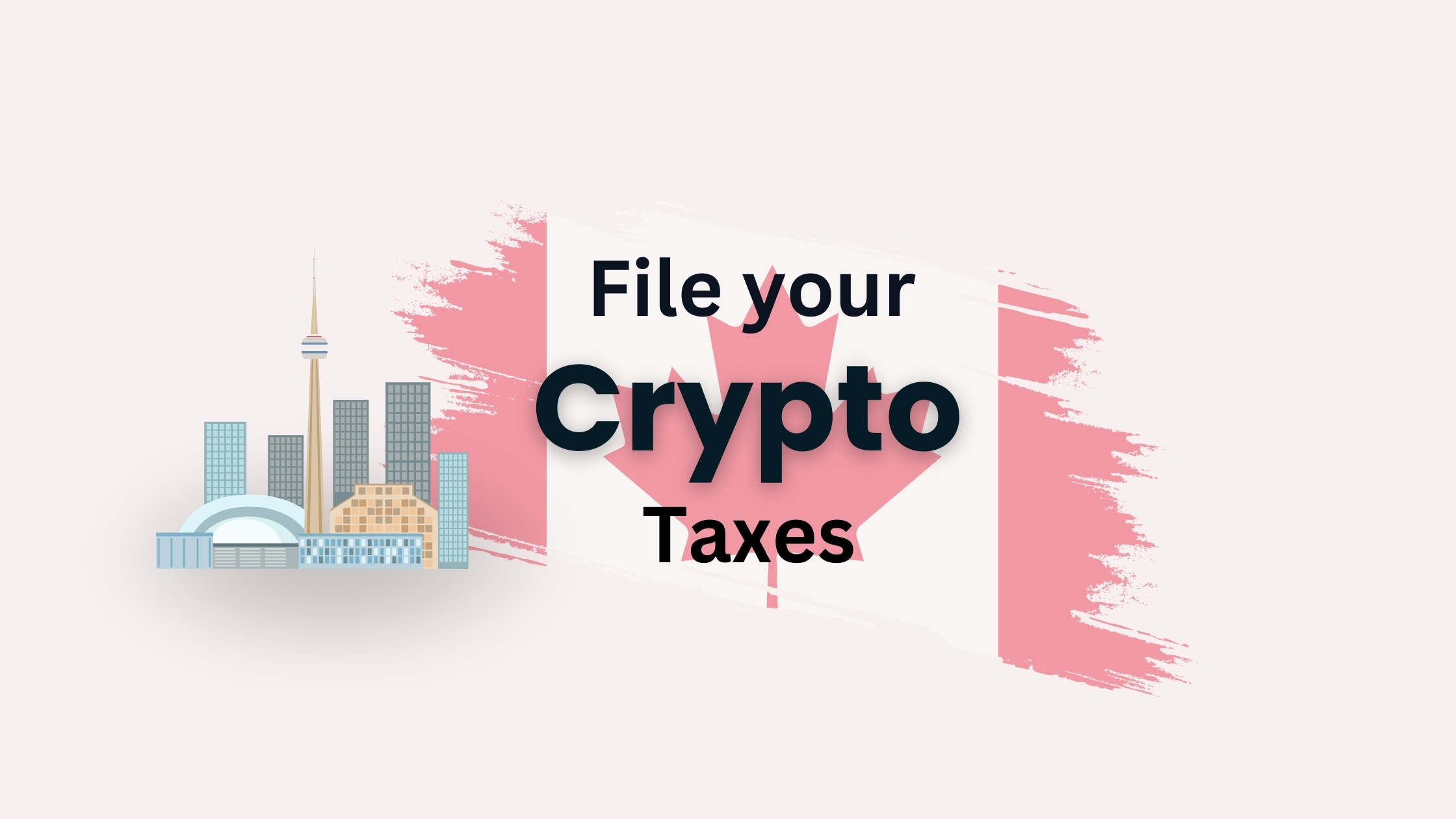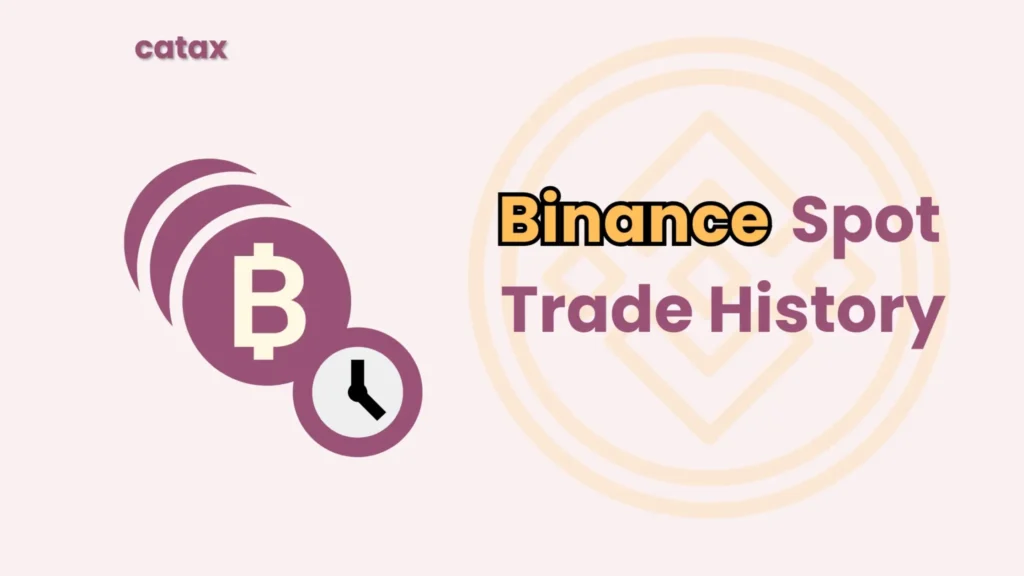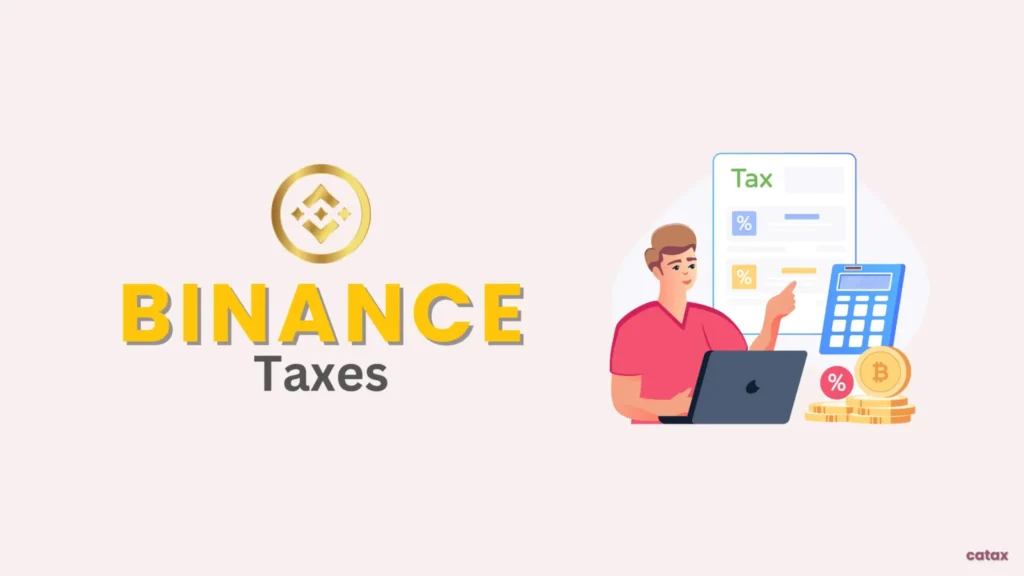Filing taxes for your cryptocurrency transactions can be challenging, particularly when managing a high volume of trades. However, this guide will simplify the process for you, offering insights on how to accurately report your crypto taxes in Canada, whether you’re trading on any other exchange. Additionally, it provides strategies to minimize your tax liability and maximize your earnings. It’s easy to follow so that you can handle your crypto taxes without stress.
Does the Canada Revenue Agency (CRA) subject cryptocurrency to taxation?
In short, yes, cryptocurrency transactions are indeed taxable in Canada. Cryptocurrencies like Bitcoin are viewed as taxable assets, thus profits from trading or earning them as income are liable to taxes like capital gains or income tax. Adhering to tax regulations is vital, and consulting a tax professional is recommended for accurate comprehension and adherence.
What is the Cryptocurrency Transaction Tax Rate in Canada?
To accurately report Crypto taxes in Canada, it is crucial to understand the taxation rate for cryptocurrency transactions. In Canada, profits generated from the purchase and sale of cryptocurrencies are taxable. These profits are taxed at the same rate as your income tax rate on regular earnings. Specifically, half of the gains from cryptocurrencies are subject to taxation at your standard income tax rate. The Canada Revenue Agency (CRA) classifies cryptocurrencies such as Bitcoin as commodities, akin to gold or silver, influencing their taxation approach. Regardless of whether you are an individual investor holding cryptocurrency or a professional trader, taxes must be paid on the income earned from these transactions.
| Transaction Type | Tax Rate |
|---|---|
| Capital Gains | 50% of the total capital gains for individual crypto holders; 100% for professional (day) traders |
| Income | Taxed as business income at the individual’s marginal tax rate |
For example:
If you made a $10,000 profit from selling cryptocurrency, as an individual holder, you would be taxed on $5,000 (50% of the total capital gains).
The CRA can keep tabs on crypto transactions, even if they’re below a certain amount, by working with big cryptocurrency exchanges. These exchanges have to report transactions over a certain value and also collect information about their customers.
Remember, If you’re trying to avoid paying taxes on your cryptocurrency gains, be aware that the CRA can use technology like blockchain to trace transactions and find out if people are dodging their tax obligations.
Can the CRA trace your Cryptocurrency Transactions?
Yes, The Canada Revenue Agency can trace your cryptocurrency transaction. They do this by working with major exchanges, which have to report transactions over C$10,000 to the CRA. Exchanges also gather customer details, which they can share if asked. The CRA can also use blockchain technology to follow cryptocurrency transactions, spotting any suspicious activity that might suggest tax evasion.
It’s worth noting that the CRA can monitor cryptocurrency transactions even if they’re under C$10,000 because exchanges collect customer information. Hence, it’s safest to assume the CRA knows about all your crypto dealings and to report them accurately to stay on the right side of the law.
Crypto Transactions that are tax-free in Canada
Here are some crypto transactions that are tax-free in Canada.
- Buying crypto with fiat currency: Purchasing cryptocurrency is tax-free in Canada.
- Holding: Holding onto cryptocurrency without engaging in any transactions is also tax-free.
- Moving crypto between your wallets: Transferring cryptocurrency between personal wallets is exempt from taxation.
- Being gifted crypto: Receiving cryptocurrency as a gift is not subject to taxation.
- Creating a DAO (Decentralized Autonomous Organization): Establishing a DAO is classified as a tax-free transaction in Canada.
How are Cryptocurrencies taxed in Canada

Crypto Taxes in Canada are a significant consideration for cryptocurrency investors and traders. The Canada Revenue Agency (CRA) taxes cryptocurrencies as commodities under the Income Tax Act. Taxation varies depending on whether the profits are classified as capital gains or business income. For transactions considered as income, taxpayers are subject to regular federal and provincial tax rates. When it comes to gains, taxes are applied to half of the gain. Activities such as buying or holding cryptocurrency do not incur taxes, but selling or mining cryptocurrencies are taxable events. To ensure compliance, the CRA monitors transactions, with cryptocurrency exchanges like Crypto registered with FINTRAC. The public nature of blockchain transactions plays a role in tax determination. Taxpayers are required to report gains or income from cryptocurrencies; however, not all transactions are deemed business activities.
What crypto records will CRA want?
The Canada Revenue Agency advises maintaining comprehensive documentation of your cryptocurrency transactions for tax filing in 2024. Here is the information that they are likely interested in:
- Transaction Dates: Document the date for each cryptocurrency buy, sell, trade, or exchange.
- Monitor the current market value of your cryptocurrency on the date of acquisition and the date of disposal (sale, trade, etc.).
- Quantity: Monitor the quantity of cryptocurrency involved in each transaction (number of coins/tokens).
- Cryptocurrency Wallet Information: Keep track of your wallet addresses for cryptocurrencies and the addresses of individuals you have engaged in trading with.
- Record-keeping for Crypto Exchanges: It is advisable to save copies of your transaction history and any corresponding fees if you engage in cryptocurrency exchanges.
- Supplementary Documentation: Depending on your circumstances, you may need documentation of mining revenue, staking awards, or airdrops.
Calculating Gains on Crypto in Canada
To start with, in managing Crypto taxes in Canada, first decide if you’ll pay taxes on half or all of your gains. Typically, 50% of profits from buying and selling crypto are taxable. The process of calculating gains on cryptocurrency transactions in Canada involves determining the cost basis (the amount paid for the crypto) and subtracting it from the proceeds (the amount received from selling or trading). The result is your capital gain or loss. If you sell crypto at a loss, you can claim a capital loss on your tax return, which can reduce your taxable income for the year. Furthermore, in Canada, only half of your capital gains from crypto transactions are subject to tax, and the applicable tax rate varies depending on your tax bracket.
For example,
If you bought 1 Bitcoin for $10,000 and sold it for $15,000, your capital gain would be $5,000 (15,000-10,000). Since only half of your capital gains are taxable, you would pay tax on $2,500. .
The CRA can track crypto transactions and use blockchain technology to trace cryptocurrency transactions, making it important to accurately report your transactions. Consulting with a tax accountant specializing in cryptocurrency can help ensure compliance with crypto taxes in Canada.
Reporting your Crypto taxes in Canada
The Canadian Revenue Agency (CRA) considers cryptocurrency a capital asset, and depending on your crypto activities, you might need to file different forms:
- Schedule 3: This is the most common form for reporting capital gains or losses from buying and selling crypto. This applies to most individual investors.
- Form T2125: This form is used to report business income, including income from crypto mining or trading if considered a business by the CRA.
Additional Filing:
Form T1135: If you’re a Canadian resident holding crypto assets exceeding 100,000 CAD in total value outside Canada, you might need to file this form to disclose your specified foreign property.
Remember: The deadline to file your tax return for 2023 was April 30th, 2024, if you don’t owe money. For more information and up-to-date details, consult the CRA website or a tax professional.
Minimising your Crypto tax
In Canada, there’s no legal way to avoid crypto taxes in 2024. The Canada Revenue Agency (CRA) treats crypto as a capital asset, and any capital gains are taxable. However, there are some strategies you can follow to minimize your crypto tax
- Hold Your Crypto: The simplest way is to hold your crypto long-term. You only incur capital gains taxes when you dispose of your crypto, like selling or trading it.
- Track and Offset Losses: If you sell crypto at a loss, you can use those capital losses to offset capital gains from other crypto sales, reducing your overall tax bill.
- Strategic Selling: Consider selling crypto during lower-income years to benefit from a lower tax bracket.
- Donations: Donating crypto to registered charities can be tax-deductible, but there are limitations.
Simplifying your taxes with Catax
Start Connecting Catax and Crypto: Kick things off by linking your Crypto and Catax accounts. You’ll use API keys for a safe link-up. It’s pretty straightforward.
Import Your Trades: Catax jumps into action, pulling in your Crypto trades, deposits, and withdrawals. Check everything to ensure no transaction gets missed.
Review Everything: Now, take a close look at your transactions. Spotting any differences or missing bits is crucial for accurate tax calculations.
Pick Your Tax Year: Select the year you’re sorting taxes for. This ensures your Catax report matches what the CRA expects.
Generate Your Report: Catax will craft a detailed tax report. This includes all the gains and losses the CRA needs.
Double-check the Report: Give your tax report a thorough review. You want to catch any errors to make sure it’s spot-on.
Submit to the CRA: Once you’re happy with the report, send it off to the CRA. Remember, beating the deadline is key to avoiding any hiccups.
Why This Matters: Dealing with crypto taxes keeps you right with the CRA and ensures you’re making the most of your investments. Catax makes this whole process simple and stress-free. It’s like having a tax pro by your side, guiding you through each step, ensuring you tackle tax season with confidence.
How Catax Can Streamline Your Crypto Taxes in Canada
In Today’s world cryptocurrency continues to disrupt investment and transaction markets worldwide, including Canada. The increased interest has also led to more accounting experts providing crypto tax services. For easy crypto tax management, consult these expert accountants.
Catax calculates capital gains and losses and offers complete tax reporting. Catax assures compliance with Canadian tax rules and regulations, ensuring peace of mind. Moreover, Catax’s team of experts is dedicated to simplifying the complex world of crypto taxes for Canadian taxpayers.
Tax Reporting Made Easy using Catax: Catax syncs easily. Catax generates a complete tax report when connected. The CRA requires all profits and losses. We securely extract your transaction history from your account to Catax, making crypto tax calculation easy.
Guide to Sync: A full instruction on connecting Catax will provide a complete tax report to maximize your experience. The CRA requires all profits and losses. An account with Catax is useful. This guarantees accurate and compliant tax reports are easy to create.
Tax Calculation Tips: Catax provides full tax reports. This covers all the earnings and losses the CRA needs. Canadian crypto tax calculator gives you a good estimate of your crypto trading taxes.
Frequently Asked Questions (FAQs)
In Canada, the government taxes profits from buying and selling cryptocurrencies at the same rate as your regular income tax rate. This means that your regular income tax rate applies to half of your gains from crypto trading.
Yes, the CRA can trace cryptocurrency transactions by working with major exchanges that report transactions over a certain value to the CRA. They can also use blockchain technology to follow cryptocurrency transactions and detect any suspicious activity.
Some tax-free crypto transactions in Canada include buying crypto with fiat currency, holding onto crypto without trading, transferring crypto between your wallets, receiving crypto as a gift, and creating a Decentralized Autonomous Organization (DAO).
The CRA taxes cryptocurrencies in Canada and treats them as commodities under the Income Tax Act. Taxation depends on whether profits are classified as capital gains or business income.
While there’s no legal way to avoid crypto taxes to Crypto in Canada, some strategies can help minimize your tax burden, such as holding onto your crypto for the long term, tracking and offsetting losses, strategic selling during lower-income years, and donating crypto to registered charities.



